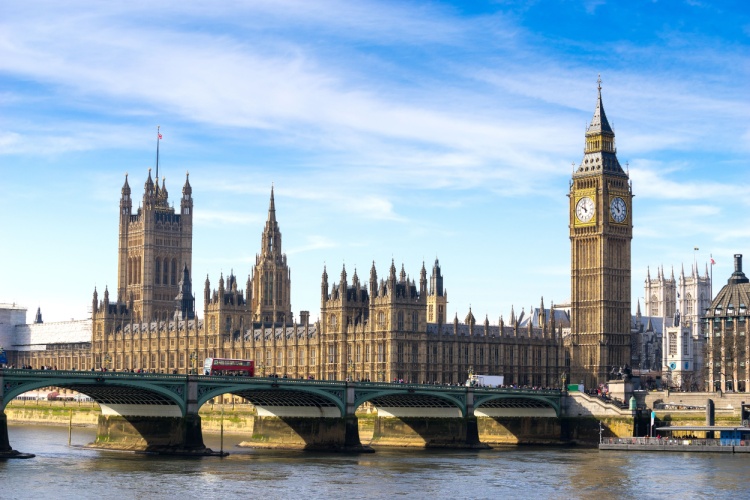While countries are beginning to lift lockdown restrictions, we’re still seeing the economic impact of Covid-19 around the world, as businesses get to grips with the consequences and ongoing social distancing.
According to the OECD, the global economy is set to suffer its worst peacetime slump for 100 years. It’s now expected that global GDP will be -6% in 2020.
In response to the impact, businesses have been shedding jobs. Tens of thousands of workers have lost their jobs around the world, including from well-known names. BP, for example, has cut its workforce by 10,000 globally. Unsurprisingly, with travel being restricted, the airline industry has been one of the hardest hit. IATA, predicts that the industry is heading for a $100 billion loss in 2020/21. Although, travel corridors between countries could provide some relief for the second half of the year.
UK
The UK has seen economic forecasts fall over the last few months, as lockdown has led to businesses closing or needing to change the way they work. However, Bank of England’s chief economist Andy Haldane has suggested things could start looking up. He said we’re now in the ‘recovery phase’ and were on track for a V-shaped recovery, where a sharp decline is followed by a sharp incline. However, he cautioned that it’s still early days and the risk of a surge in unemployment could hamper recovery.
In line with this, the Bank of England announced more economic stimulus, expanding its quantitative easing programme by adding a further £100 billion to help stave off an economic downturn. This addition takes the total programme to £745 billion.
The PMI figures released in June still paint a gloomy picture but do show signs of recovery when compared to a month earlier:
- The UK manufacturing PMI was little changed from May, at 40.7
- The construction sector is also struggling but the PMI did climb from the record low of 8.2 in April to 28.9 in May
- An economic snapshot for the service sector was also gloomy. The May PMI was far higher in May than April, at 29 rather than 13.4, but still far below growth
Consumer debt also indicates that consumers are worried about their financial security. Credit card lending fell by -7.8% in April, as households cut back on their spending. This negative outlook and ongoing restrictions are also affecting the housing market. Mortgage approvals have fallen 90% since February.
While retailers took steps in June, pessimism continued. Some 60% expect consumer demand to be weaker than last year, though the impact isn’t expected to be as severe as it was in May.
Unemployment remained steady in May at 3.9% but it’s thought the government furlough scheme is masking the full damage. Several big companies announced deep job cuts including:
- British Gas owner Centrica is to cut 5,000 jobs
- Aston Martin axes 500 jobs following a slump in sales
- Airbus cuts 15,000 jobs globally, including 1,700 in the UK
- Intu falls into administration, putting thousands of jobs on the line
- HSBC pushes ahead with its redundancy programme that was started before the Covid-19 outbreak. Globally 35,000 jobs will be lost
It seems impossible that Brexit has barely made the headlines in recent months. But the deadline is fast approaching. Boris Johnson has said that Brexit talks will enter ‘hot phase’ from September, with both sides keen to secure a deal this year. So, expect Brexit and the implications to feature more heavily in the coming months and affect markets as a result.
Europe
Figures from Europe painted a similar picture to the UK.
Eurozone GDP fell 3.6% in the first quarter of the year, as the impact of restrictions were felt across the region. Unemployment also rose by 7.3% in April, the latest figure available. However, early signs suggest the slump is easing in some sectors, the manufacturing PMI increased by just 0.1 but remains below the 50 figure that represents growth, at 39.4 in May.
In response to the current uncertainty, the European Central Bank has expanded its quantitative easing programme. It unveiled a €600 billion bond-buying programme, larger than many expected. Purchases will continue until the end of June 2021.
US
The US is continuing to grapple with high levels of coronavirus, affecting business operations. However, unemployment figures fell in June, suggesting businesses are reopening as restrictions are lifted, whether the numbers will fluctuate as some states reimpose measures remains to be seen. With the presidential campaigns underway for the election later this year, unemployment figures are likely to be a key focus in the coming months.
It was also reported that the US is considering imposing new tariffs on $3.1 billion worth of imports for the EU and UK. Goods under consideration include olives, coffee, chocolate, beer, gin and some machinery. It’s a move that’s likely to exacerbate tensions on both sides of the Atlantic.
Asia
China’s PMI rises after the country has suffered three months of contraction. It went from 44.4 in April to 55 in May, with figures about the 50-mark indicating growth. After the country ended lockdown in February, it has continued to post modest growth in factory output, PMIs show.
However, one area of risk to the Chinese economy is the geopolitical tensions with Hong Kong. Earlier this year, this was marked by mass demonstrations and protests in Hong Kong. Now the immediate health concerns of Covid-19 have abated, the protests have begun again.
Please note: The value of your investment can go down as well as up and you may not get back the full amount you invested. Past performance is not a reliable indicator of future performance.




